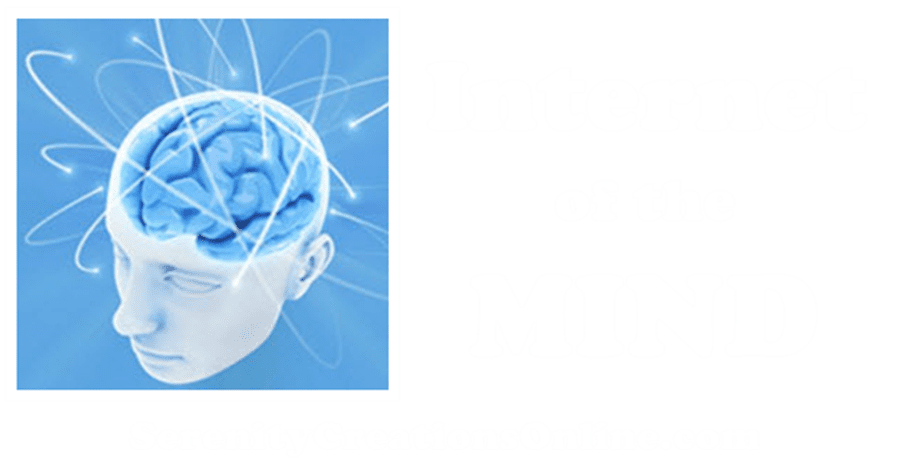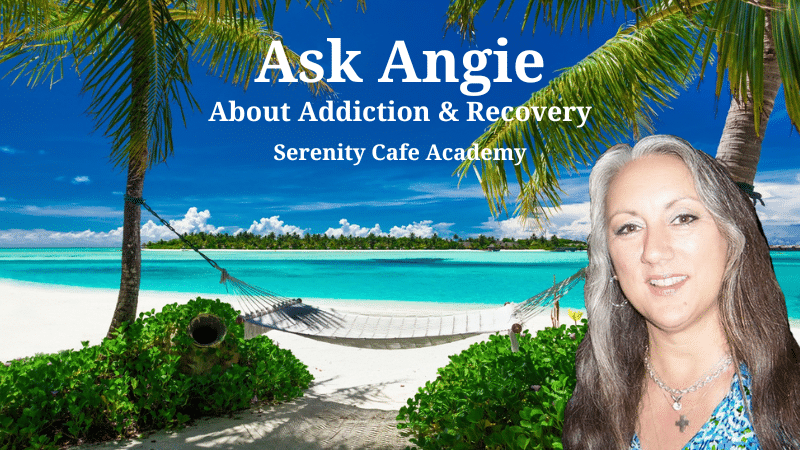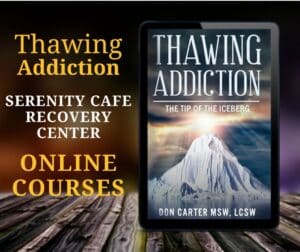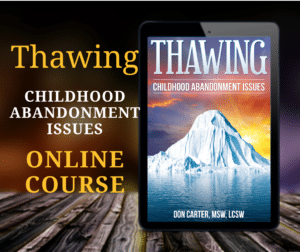
Alcoholism Symptoms – the Disease Concept
The alcoholism symptoms below describe what has often been called the Disease Concept of addiction — These symptoms can be seen in any addictive process including addictions to other drugs, gambling, sex, food, work-a-holism, etc.
Symptoms of Alcoholism and Other Addictions

Questions? Contact Angie at Carter Counseling
In the mid-1950s the World Health Organization and the American Medical Association defined alcoholism as a disease. Approximately 20 years earlier the organization of Alcoholics Anonymous (AA) began offering hope to millions of people worldwide when no one else could.
Symptoms of Alcoholism: the Disease Concept
Several elements are required before health organizations refer to any condition as a disease. Hallmark criteria are in the catagories below.
- Signs and Symptoms
- A Clinical Course
- A Predictable Outcome
- Treatability
Is it treatable? Yes, alcoholism symptoms are highly responsive to the right kind of treatment — that is if treatment is given by specialists in the field of addictions treatment. Good treatment programs report a 60 to 70% recovery rate on follow-up a year after treatment. However, it is important to know that treatment is only the beginning… recovery means making long-term lifestyle changes that include working a daily recovery program. This “programming” helps one develop a new neural network for recovery…a new steady-state.
Does it have a predictable outcome? Yes, alcoholism is a terminal illness – left untreated it will kill you in one of three ways:
- Accidents – household accidents and motor vehicle accidents
- Illnesses – secondary to alcoholism such as liver failure, heart attack, etc.
- Suicide – Due to the depression and hopelessness secondary to the alcoholism
What’s the course of the illness? Alcoholism is chronic, progressive, and fatal – if left untreated. The sad fact is that even though there is an extremely high recovery rate only 3 to 4% of alcoholics receive the treatment they need. The course of alcoholism is to progressively take over control of your thinking and your life causing more and more dysfunction until finally, it kills you…but not before taking everything important to you away and hurting everyone you care about first.
Alcoholism Symptoms – Early, Middle, and Late Stages
Early Stage
- Relief Drinking
- Increase in Tolerance
- Preoccupation
- Loss of Control
- Continued Use Despite Serious Negative Consequences
Middle or “Crucial” Stage
- Family Problems
- Social Problems
- Emotional Problems
- Financial Problems
- Legal Problems
- Occupational or Academic Problems
Late or “Chronic” Stage
- Physical Deterioration
- Serious Physical Withdrawal Syndrome
- Obsession
- Loss of Social Supports
- The collapse of the Alibi System
- Drinking to function or “feel normal”
- Hopelessness and Despair
- Death
All of the earlier stage alcoholism symptoms persist and grow stronger throughout the progression of the illness. By the time the alcoholic progresses to the late stage the early & middle stage symptoms become severe.
For example:
- The early stage alcoholism symptom of preoccupation becomes the late stage symptoms of obsession with drinking…and/or
- Occasional mild loss of control (such as drinking 6 beers when you only intended to drink 3 beers) becomes drinking into a blackout or until passing out on most, if not all drinking occasions…and/or
- Occasional relief drinking to “relax” or “take the edge off” stress becomes a pattern of maintenance drinking (getting up at 2 am to have another drink so you can sleep)…and/or
- Mild to moderate family problems such as coming home drunk after curfew progresses to your third drinking-related divorce.
- Mild to moderate occupational problems such as missing work once in a while due to a hangover becomes getting fired from your third job in three years due to drinking-related problems…and/or
- Mild to moderate emotional problems such as feelings of sadness becomes a chronic depression. Alcohol is a depressant that feels like a stimulant — so it feels like it helps but actually makes the depression worse. One cannot cure depression with depression.
Remember, pain is optional and there is help available. If you can relate to these Alcoholism symptoms please get help. Contact Us if you have questions. Learn more at our Addiction Recovery Center online (Click/tap the image below)





